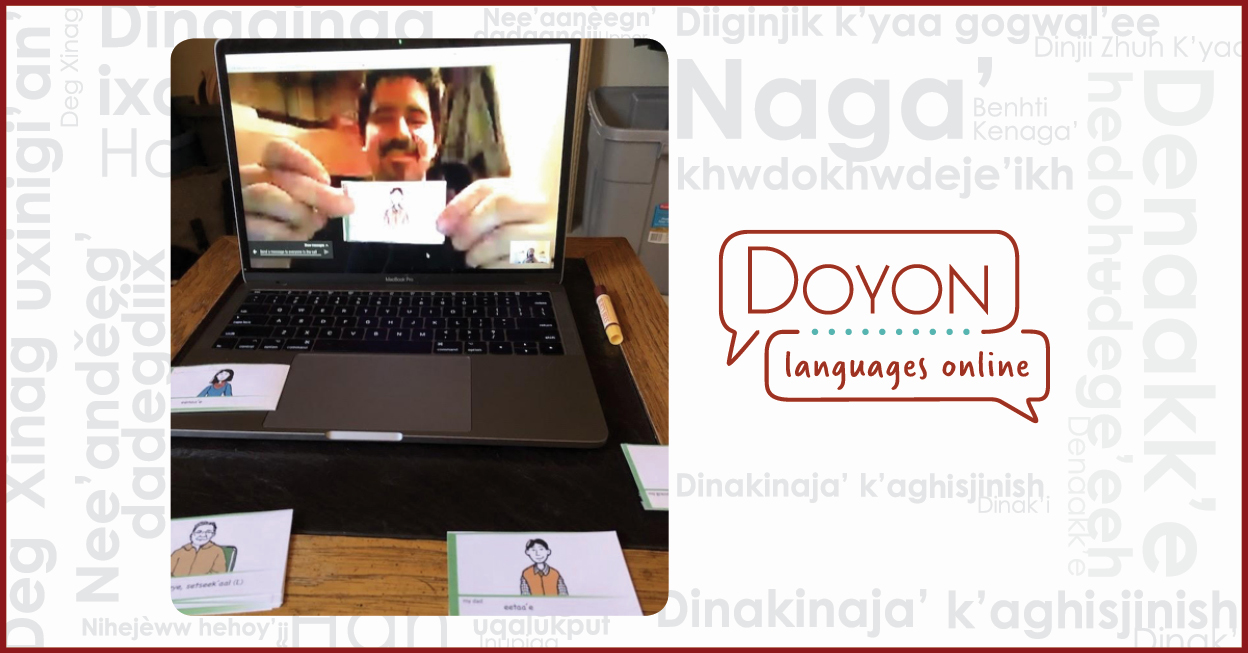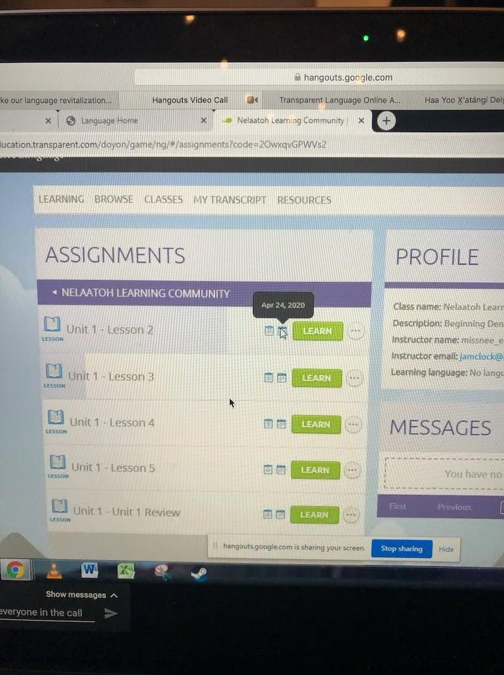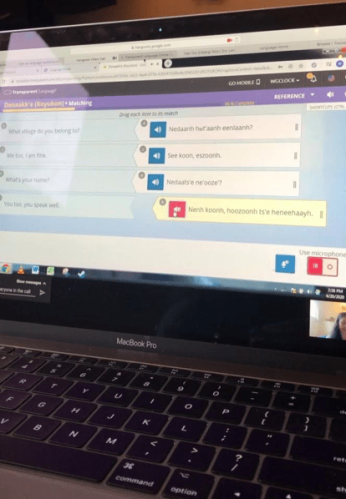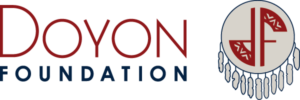
Anna Clock is a participant in the teacher training through the Doyon Languages Online project. She has formed a learning group with her brother, William, who is using Doyon Languages Online to learn Denaakk’e. They are the grandchildren of Regina Clock of Kaltag. Their parents are Eric Clock of Kaltag and Cindy Clock of Yakima, Washington. Here, Anna shares with us about their experience teaching and learning via distance – Anna at her home in Anchorage, and William working on his tug boat on the Cook Inlet.
Doyon Languages Online, a Doyon Foundation project, is developing online language-learning lessons for the endangered Native languages of the Doyon region. The lessons are available for free to all interested learners. Courses in Holikachuk, Gwich’in, Denaakk’e and Benhti Kenaga’ were launched in summer 2019, and the remaining courses will be released this year. Learn more and sign up at www.doyonfoundation.com/dlo.
If you are teaching or learning a language using Doyon Languages Online, we would love to hear your story as well! Please send us photos and tell us about your experience by emailing [email protected].
April 20, 2020, story and photos courtesy of Anna Clock
 William and I video-called through Google Hangouts after the Doyon Languages Online spring teacher training on Monday night. It was our first attempt at distance-learning, and it went well.
William and I video-called through Google Hangouts after the Doyon Languages Online spring teacher training on Monday night. It was our first attempt at distance-learning, and it went well.
When he logged onto his Doyon Languages Online account, he was able to see the class I enrolled him to, and all his assignments.
We agreed that one lesson per week is a good pace. We will meet on Monday nights, and do part of the lesson together. He will try to finish it by Friday. He is a quick learner, so I think he will be successful while still balancing work on his tug boat.
During our call, he was able to screen share, so I could watch him go through Unit 1, Lesson 2. There was some background noise from the engine on his boat, but I could still hear him pretty well. I couldn’t hear the audio from the lesson as he played it, so I asked him to repeat the phrases and I could hear him well. He was picking up the pronunciation good from the audio clips in the lesson.

I remembered from K’etsoo’s (Susan Paskvan) class that it was helpful to me as a learner when she pointed out what an individual part of a Denaakk’e phrase meant. This helped me remember the whole phrase’s meaning, so I passed this practice down to my brother and it helped him as well.
I was thankful to have a close family member I am comfortable with supporting me in my new teaching endeavor. It took the pressure off, and we had fun.
After going through part of the lesson, we took a break to play “show me.” We used a few of the flash cards K’etsoo shared.
Our whole call lasted for about an hour and went by quick.
